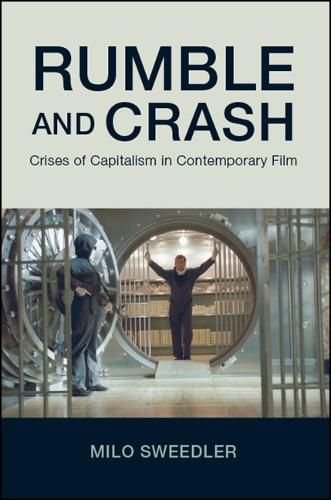Readings Newsletter
Become a Readings Member to make your shopping experience even easier.
Sign in or sign up for free!
You’re not far away from qualifying for FREE standard shipping within Australia
You’ve qualified for FREE standard shipping within Australia
The cart is loading…






At the beginning of the twenty-first century, as the contradictions of capitalism became more apparent than at any other time since the 1920s, numerous films gave allegorical form to the crises of contemporary capitalism. Some films were overtly political in nature, while others refracted the vicissitudes of capital in stories that were not, on the surface, explicitly political. Rumble and Crash examines six particularly rich and thought-provoking films in this vein. These films, Milo Sweedler argues, give narrative and audiovisual form to the increasingly pervasive sense that the economic system we have known and accepted as inevitable and ubiquitous is in fact riddled with self-destructive flaws. Analyzing four movies from before the global financial crisis of 2008 and two that allegorize the financial meltdown itself, Sweedler explores how cinema responded to one of the defining crises of our time. Films examined include Alfonso Cuaron’s Children of Men (2006), Stephen Gaghan’s Syriana (2005), Fernando Meirelles’s The Constant Gardener (2005), Spike Lee’s Inside Man (2006), Martin Scorsese’s The Wolf of Wall Street (2013), and Woody Allen’s Blue Jasmine (2013).
$9.00 standard shipping within Australia
FREE standard shipping within Australia for orders over $100.00
Express & International shipping calculated at checkout
At the beginning of the twenty-first century, as the contradictions of capitalism became more apparent than at any other time since the 1920s, numerous films gave allegorical form to the crises of contemporary capitalism. Some films were overtly political in nature, while others refracted the vicissitudes of capital in stories that were not, on the surface, explicitly political. Rumble and Crash examines six particularly rich and thought-provoking films in this vein. These films, Milo Sweedler argues, give narrative and audiovisual form to the increasingly pervasive sense that the economic system we have known and accepted as inevitable and ubiquitous is in fact riddled with self-destructive flaws. Analyzing four movies from before the global financial crisis of 2008 and two that allegorize the financial meltdown itself, Sweedler explores how cinema responded to one of the defining crises of our time. Films examined include Alfonso Cuaron’s Children of Men (2006), Stephen Gaghan’s Syriana (2005), Fernando Meirelles’s The Constant Gardener (2005), Spike Lee’s Inside Man (2006), Martin Scorsese’s The Wolf of Wall Street (2013), and Woody Allen’s Blue Jasmine (2013).